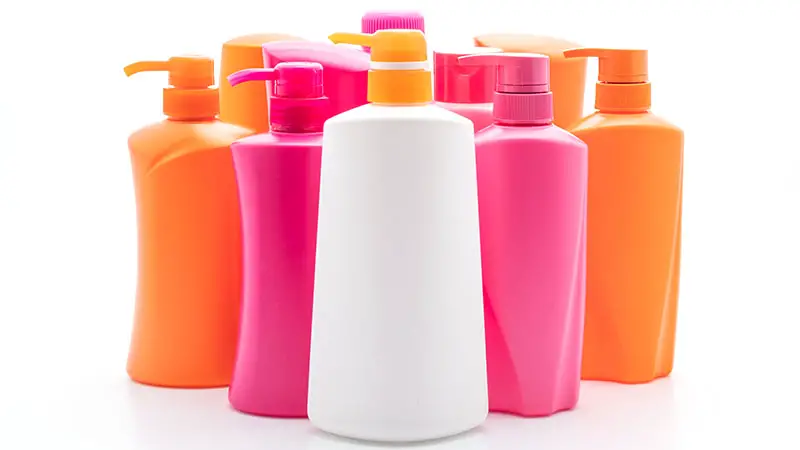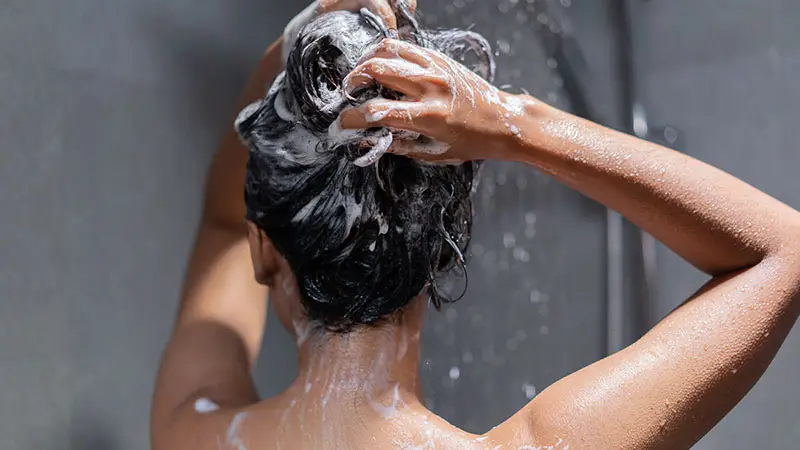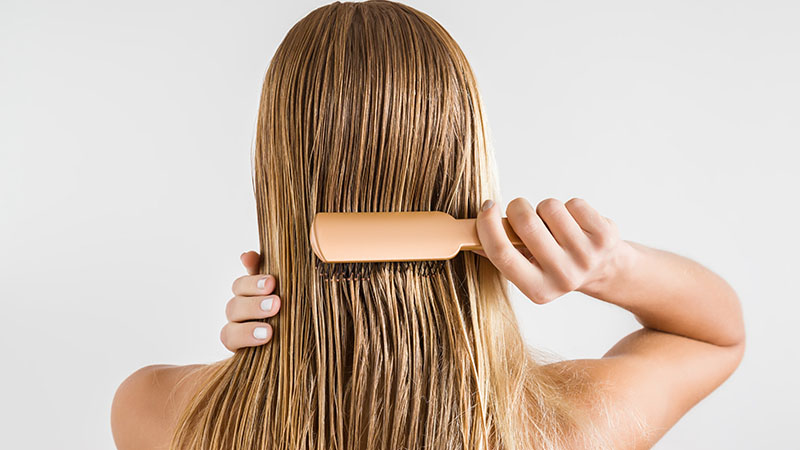No matter the time of year, swimming is such a versatile and beneficial form of exercise. You can do it outside in the tropical summer heat or inside when the winter chill is too harsh to bear. Swimming can transform your physique or build you back up from injury. It’s inclusive for all ages, sizes, and abilities, and to me, it really is the jack of all trades.
Contents
But, no matter how wonderful something may seem, there are always going to be some minor setbacks or disadvantages to consider. For some, swimming can be a skin irritant if done too much. For others, swimming may cause eye discomfort. No matter what, if you’re considering swimming everyday, it’s important that you get to know your body and understand how to best mitigate these potential discomforts or disadvantages. This includes knowing how to protect hair when swimming everyday.
For many, hair frailness and irritation can become an issue when exposed to the elements of swimming day in and day out. If you’re swimming everyday, you’re increasing your chances of this happening to you. But you don’t have to sacrifice luscious and voluminous hair for a great workout.
Before we dive into how to protect your hair when swimming everyday, let’s discuss what are the primary culprits that can cause your hair harm…
Why is Swimming Everyday Bad for Your hair?
Chlorine
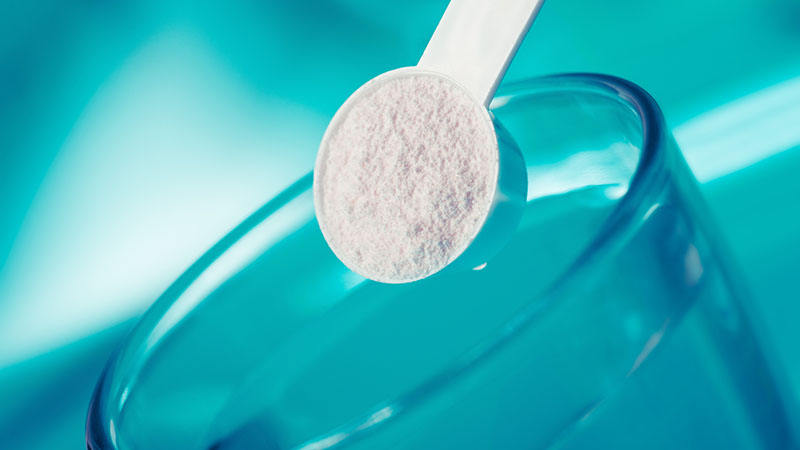
Often, chlorine gets a bad rap. It gets the blame for lots of things (like hurting your hair, irritating your skin, and more), but it also plays an integral part in our being able to swim safely. Chlorine kills harmful bacteria that we find in pools, such as E. Coli and salmonella. It allows us all to swim safely with less fear of developing stomach viruses, swimmer’s ear, and any other ailment that could result from growing bacteria in stationary water. So, it’s important to remember that chlorine is our friend. There are just some side effects we may have to deal with.
One of the primary side effects of chlorine is that it can negatively affect your hair. Because chlorine is so great at making sure it gets rid of all potentially harmful substances, it has been known to even strip the natural oils from your hair. In some hairstyles, it can even alter your natural hair color and weaken your strands altogether.
Now, the occasional swim won’t cause your hair to feel frail and frizzy, but if you are considering swimming everyday as a part of your new workout routine, you’ll definitely need to consider taking extra measures to protect your hair. If you’re not cautious, the more exposed you are to this chemical, the more likely you are to suffer from some side effects.
Sun

When I think about swimming and hair damage, my brain typically goes straight to blaming chlorine. However, that isn’t the only culprit that might cause harm to your hair. If you’re a summer pool-lover and spend your afternoons swimming to beat the blazing summer heat, then the sun may also affect your hair.
Sun damaged hair has similar side effects to chlorine damaged hair, but the way it does it is different. They have found that, over time, the heat and harshness of the sun’s rays can affect the structure of your hair and absorb the natural moisture, leaving it with a less than ideal texture. Adding to this, overexposure to UV rays can also weaken the proteins in your hair, affect your hair pigmentation, its strength, and more..
So, if you’re considering swimming outside for leisure to escape the heat or for exercise, you’ll need to consider both chlorine and the sun as harmful contributors to potentially damaging your hair.
Water In General

Now, this may seem odd. I mean, don’t we use water to wash our hair? Some do it a few times a week, while others do it every single day. How could normal water not be good for your hair?
Well, it turns out that water can strip your hair of its natural oils just like chlorine and the sun can. Because our hair is highly absorbent, it can gain as much as 30%-50% of its weight when wet. Your strands literally absorb an incredible amount of water. It swells up when wet to just shrink back when dried. Swelling and shrinking repeated over and over can leave your hair fatigued, split, and stripped of its natural state.
So, you will exacerbate this process over and over. Not to mention, you will probably swim in chlorinated water, making your chances of damaging your hair even worse.
How To Protect Hair When Swimming Everyday – 9 Helpful Tips
Now, all of that sounds pretty intense. It sounds like if you are swimming everyday, you’re going to have some rough-looking hair for the unforeseeable future. However, that is not the case at all. Now that we have a better understanding of what can damage our hair, let’s look at some really easy ways to protect your hair.
Pre-Soak Your Hair
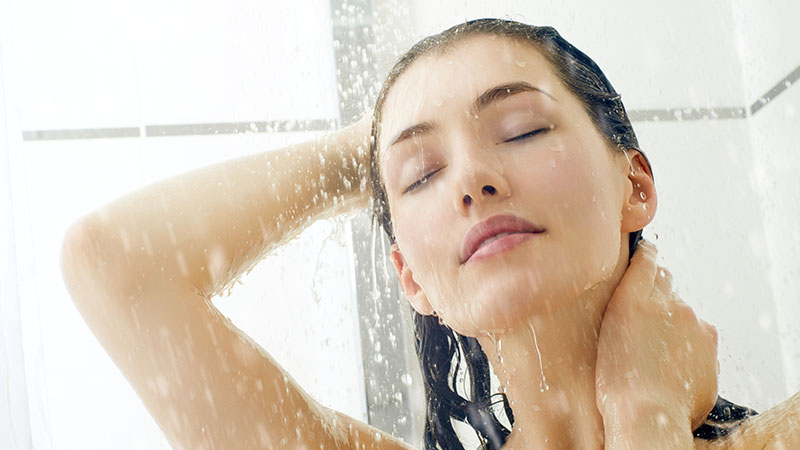
This tip seems a little counter-intuitive given the information above, but it makes sense, I promise! As I just shared, our hair is super absorbent! So, if you know you are getting in chlorinated water, it’s actually best to soak your hair in fresh water first. That way, your hair will absorb the fresh water and will be less likely to absorb the chlorinated water.
Of course, it will still expand and then contract once you dry it, which can lead to damage over time, but it’s a much better alternative! Just remember that fresh water is much better than chlorinated, and when you do this with some of the other tips below, you will be golden. So, be sure to pre-soak your hair and it can help combat some damage that could come your way.
Wear a Swim Cap
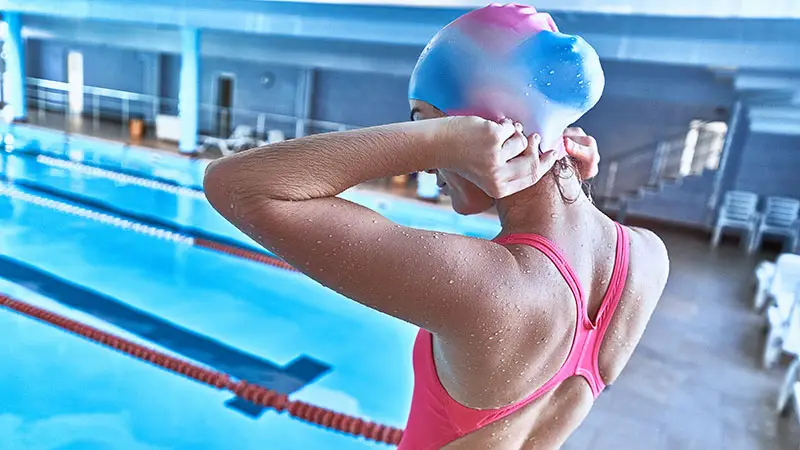
While swim caps can help Olympic swimmers increase their speed with aerodynamics and not having to worry about hair in their face, swim caps can also help protect your hair! Not that I don’t think you are an Olympic swimmer or anything! Aerodynamics are important, but it may be more important for you to use this trick to save your luscious locks! So, after you pre-soak your hair, be sure to put on a swim cap to keep it safe from the chlorinated waters!
Use Conditioners
Conditioner moisturizes your hair. Swimming repeatedly will strip your hair of moisture and leave it dry. Thus, one of the best ways to protect your hair from swimming everyday is to use conditioners.
While they don’t create all conditioners equal, I’ve found that leave-in conditioners seem to do the trick even better. After your swim, treating your hair with some leave-in conditioner could add some of that moisture back and get your hair feeling healthy again.
Some even suggest applying leave-in conditioner between your pre-soak and your swim session, noting that it can act as a protective barrier between the chlorinated water and your hair. You could do this before your swim cap, and you’ll be well on your way to keeping your hair happy and feeling healthy!
Use Oils
Similar to conditioners, you can also use natural oils to protect hair when swimming everyday. You can use them instead of conditioners, and you could do it either before you put your swim cap on or after your swimming session.
Most recommend using a small amount of natural oils in your hair after your pre-soak. Just as conditioner, this will be a barrier between your hair and the water.
If you Google it, you’ll find all kinds of suggestions on which oils will work best, but I found that most swimmers recommend either coconut oil or jojoba oil. Really, you’ll have to try out each of these tricks and tips to see what works best for you and your hair. Everyone’s hair is unique and reacts differently to different products. So, you could buy testers or sample sizes of some products, try them, and see which leave your hair feeling softest and healthiest.
Swim In Salt Water Pools
Believe it or not, salt water pools still contain some chlorine, but it differs from swimming in a chlorinated pool. Salt water pools create their own chlorine naturally through electrolysis. Because it occurs naturally, it is much less harsh on your hair than a traditionally chlorinated pool.
So, will it help to keep your hair healthy? No, but it is a much better alternative, which is why swimming in salt water pools is on our list of how to protect hair when swimming everyday.
Braid Your Hair
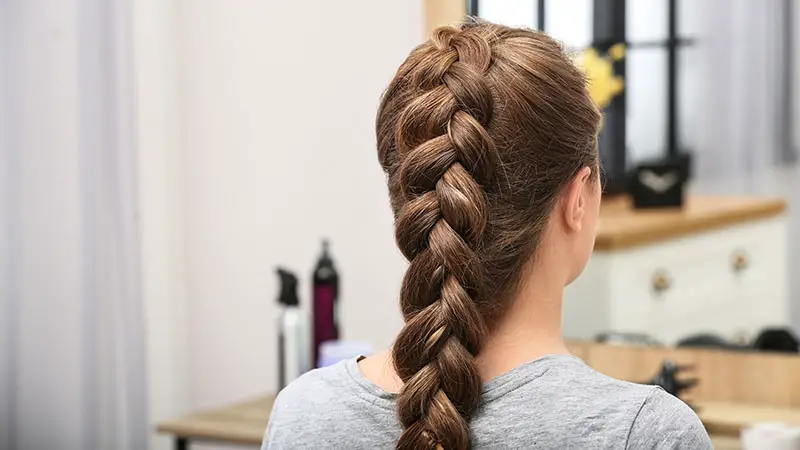
If you’ve got longer hair, your hairstyle could also protect your hair from the water and swimming constantly. If you are swimming with your hair down, it will flow everywhere and will eventually become tangled. But, if you swim in braids, your hair is bound and stronger, lending itself less likely to break and damage. It will be a lot easier to detangle and detangling hair can do some pretty severe damage.
After Swim Care For Hair
Wash Hair After Swimming
Even if you pre-soak your hair before swimming, it is important that you rinse and wash your hair after you are done. This can help wash some of the chlorination out of your hair. In washing afterwards, time is of the essence, so if you have access to a shower at your local pool, it’s highly recommended that you use it! The sooner you can wash the chlorination out of your hair, the better off you will be!
While you are not supposed to shampoo before getting in the pool, you should definitely consider it afterwards. They even make specific shampoos designed to strip your hair of chlorine. Termed “clarifying shampoos”, they remove all impurities and unwanted build up from your hair, acting as a reset. This would be a brilliant investment if you’re planning on swimming everyday.
Hydrate With Conditioner
I already shared the importance of leave-in conditioners before your swim to help protect your hair when swimming, but it is also important to hydrate it with conditioner afterwards as well. Especially if you are out there daily and shampooing your hair daily with clarifying shampoo, your hair is going to need some moisture and nourishment.
Use a Detangler
Like I mentioned with the tip of braiding your hair when swimming, detangling your hair can cause some damage. Weak hair will tangle easily. Tangled hair will break off easily when detangling. Swimming everyday causes hair to be weak. Thus, the vicious cycle will continue on and on. In order to combat this cycle, you should definitely use a detangler before brushing your hair after your swim and shower. It will allow you to brush with ease and be more gentle with your hair and scalp.

